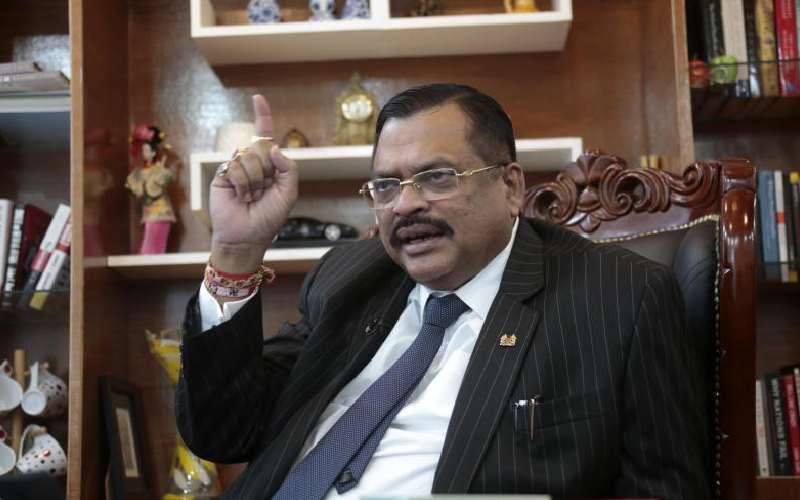×
The Standard e-Paper
Smart Minds Choose Us

Keses MP Dr Swarup Mishra during an interview at his office in Nairobi on January 24, 2022. [Boniface Okendo,Standard]
"By the grace of God,” Kesses MP Dr Swarup Mishra aka Kiprop arap Chelule likes to pepper his talk with piety.